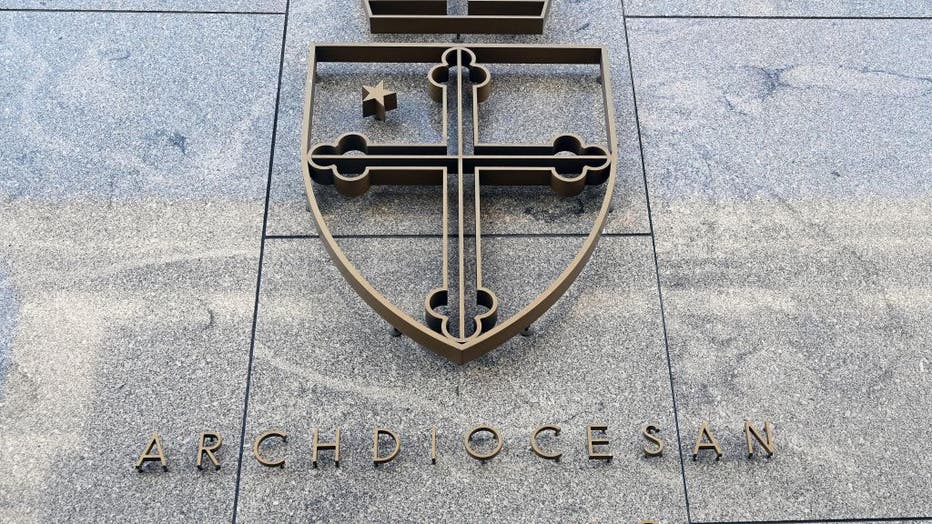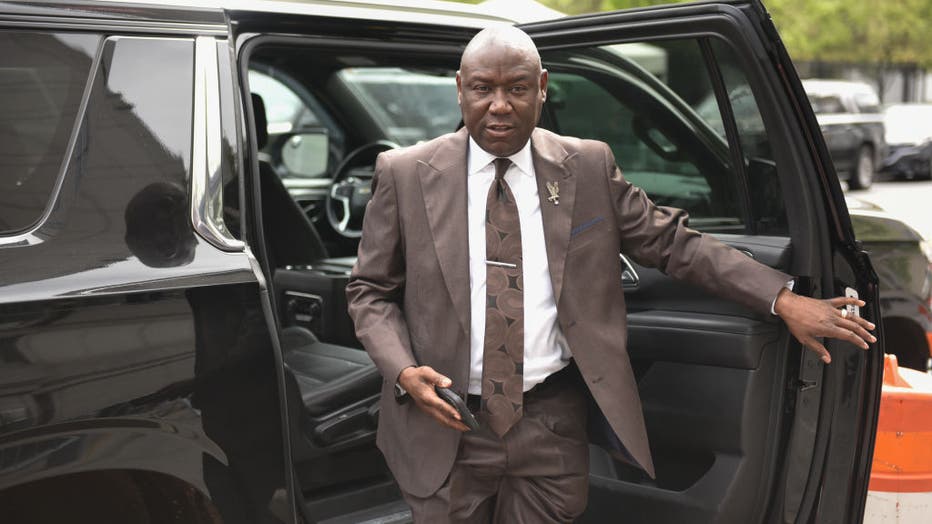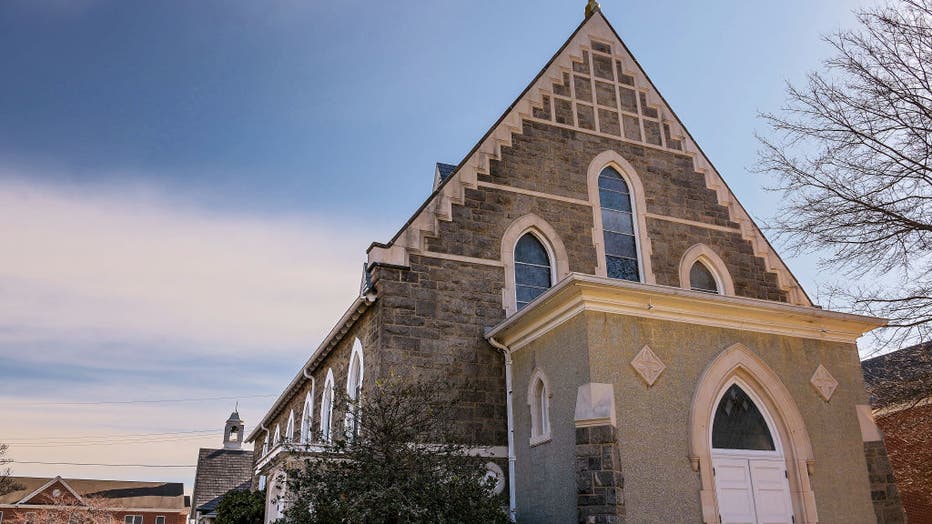Sex abuse victims to sue Baltimore Archdiocese under new law
BALTIMORE, Md. - After Maryland lawmakers recently passed legislation eliminating the statute of limitations for child sex abuse lawsuits amid increased scrutiny of the Archdiocese of Baltimore, civil rights attorney Ben Crump announced a series of civil claims Tuesday he plans to bring on behalf of victims.
The threat of litigation comes as the archdiocese faces continued fallout from a state report released last month that found more than 150 Catholic priests and other Maryland clergy sexually abused over 600 children and perpetually escaped accountability. The Maryland Attorney General’s Office spent years on its investigation, and the resulting report paints a damning picture of the archdiocese, which is the oldest Catholic diocese in the country and spans much of Maryland.

Detail of the Archdiocesan Building. The Baltimore Archdiocese announced plans to reassess and possibly totally reconfigure its operations in Baltimore City. They speak after the noon Mass at the Basilica of the Assumption. September 29, 2022. (Kim H
Less than a week after the report was released, Gov. Wes Moore signed legislation to end Maryland’s statute of limitations for child sex abuse lawsuits. Under the previous law, victims couldn’t sue after turning 38. State lawmakers had considered similar proposals in past years, but the issue failed to gain enough momentum before the 2023 legislative session.
Featured
Maryland AG releases report detailing Catholic Church sex abuse
More than 150 Catholic priests and others associated with the Archdiocese of Baltimore sexually abused more than 600 children over the past 80 years, according to a state report released Wednesday that accused church officials of decades of cover-ups.
The law takes effect Oct. 1, so the forthcoming civil claims will be filed after that date.
Crump, who’s best known for representing victims of police brutality, appeared at a news conference Tuesday afternoon in Baltimore alongside attorney Adam Slater, who has partnered with Crump on other high-profile child sex abuse cases in the past. Victims and their lawyers gathered outside the Baltimore Basilica, the first Roman Catholic cathedral built in the United States.
"You cannot outrun the trauma that was inflicted, no matter how hard they tried," Crump said during the news conference. "Many of them — for years, for decades — believed it was their fault."
The Baltimore archdiocese has already paid more than $13.2 million for care and compensation for 301 abuse victims since the 1980s, including $6.8 million toward 105 voluntary settlements.

But the recent law change, which includes a provision making it retroactive, could allow for a deluge of additional lawsuits.
The Maryland Catholic Conference, which represents the three dioceses serving Maryland, opposed the measure. It argued that the retroactive window was unconstitutional and cited the potentially devastating impact it could have on the Baltimore archdiocese and other institutions. In anticipation of a court challenge, lawmakers included language in the bill that would further delay lawsuits until the Supreme Court of Maryland can determine whether it’s constitutional.
Several other states have passed similar legislation in recent years, and in some cases, the resulting lawsuits have driven dioceses into bankruptcy.

St. Mark Catholic Church in Catonsville was home to multiple predator priests over a 40-year period, according to a list the archdiocese keeps on its website. (Karl Merton Ferron/The Baltimore Sun/Tribune News Service via Getty Images)
"As these survivors will tell you, there is no statute of limitations on the pain and damage they experienced," Crump said. "There should be no statute of limitations on justice."
The Associated Press contributed to this report.


